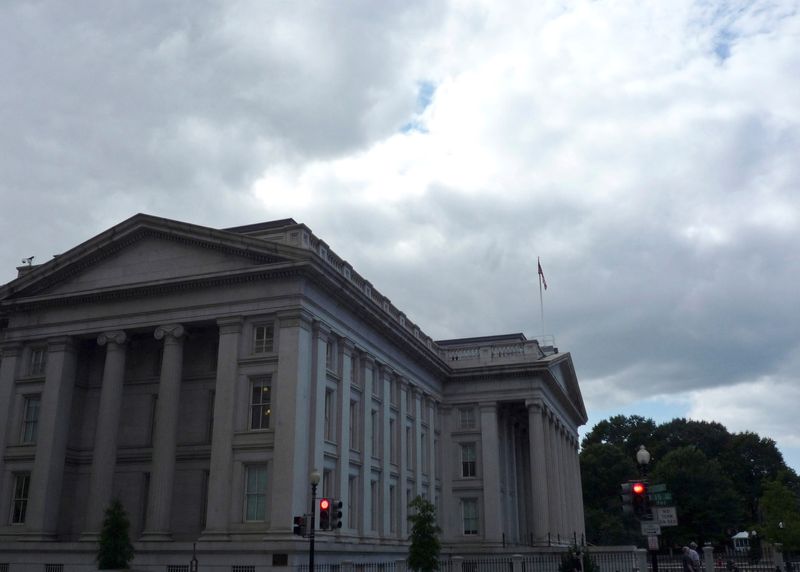
© Reuters. FILE PHOTO: The U.S. Treasury building is seen in Washington, September 29, 2008. REUTERS/Jim Bourg/File Photo/File Photo
(Reuters) – The Financial Crimes Enforcement Network (FinCEN), a unit of the U.S. Treasury, proposed new regulations on Tuesday that would require investment advisers to help prevent money laundering and the financing of terrorism.
The announcement comes a week after the agency proposed similar rules for the real estate sector, part of a wider effort to plug what officials say are holes in the regulatory system that can otherwise allow alleged criminals, corrupt foreign officials and sanctions-barred people and companies to access the U.S. financial system.
“Investment advisers are important gatekeepers to the American economy, overseeing the investment of tens of trillions of dollars,” FinCEN Director Andrea Gacki said in a statement. “This proposed rule would level the regulatory playing field, protect U.S. economic and national security and safeguard American businesses.”
The draft rule, which revives a prior proposal that was last issued in 2015 but never adopted, would require investment advisers to adopt programs designed to prevent money laundering and the financing of terrorism. It would apply to advisers registered with the U.S. Securities and Exchange Commission as well as those who report to the SEC as exempt from registration.
They would also be required to detect suspicious activity and report it to FinCEN, as banks are.
According to FinCEN, Treasury performed a risk assessment for the investment industry and found cases in which people subject to sanctions, alleged criminals, as well as foreign adversaries like China and Russia, used investment advisers to gain access to U.S. assets like securities and real estate or sensitive new technologies like artificial intelligence being developed by startups.
In advance of the announcement, a senior FinCEN official told reporters the proposal would not require investment advisers to have customer identification programs as this was something the agency expected to include in future regulations to be produced jointly with the SEC.
The proposal is subject to a period of public commentary until mid-April and may be modified before it is adopted.
Source: Investing.com



























